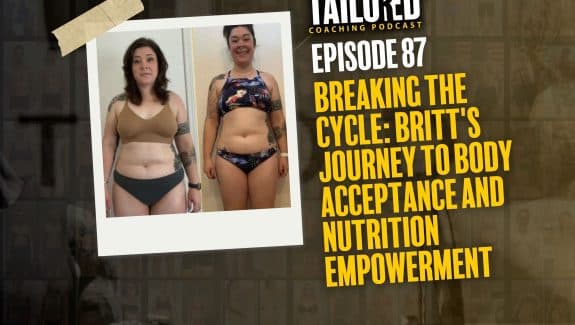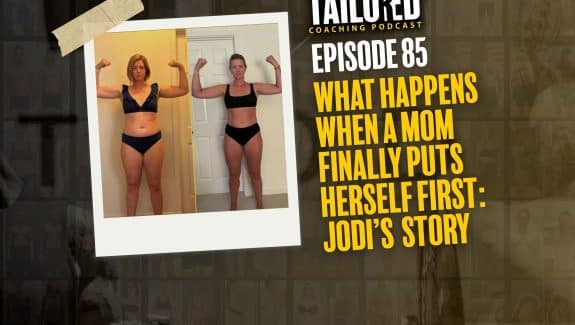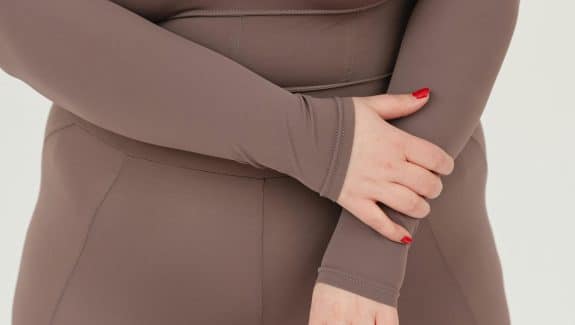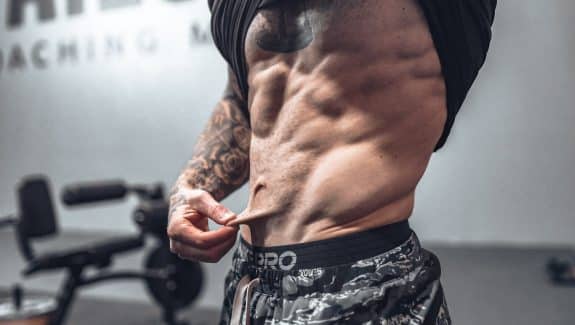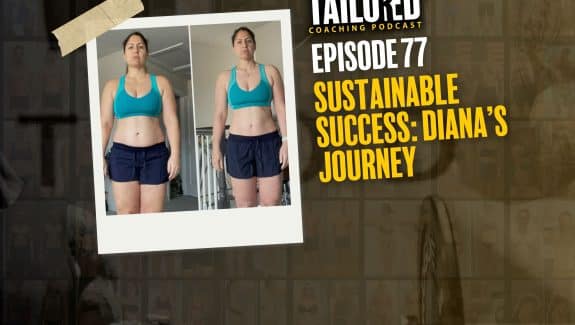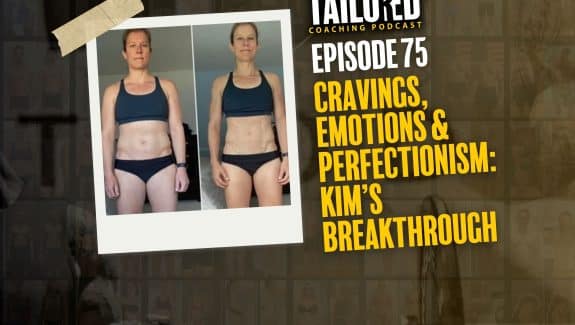Seems that in today’s society, specifically the dieting world, you need to be in part of a “diet” (or “food cult”) in order to see results.
You know exactly what I’m talking about… If you want to lose weight, you’re either on a paleo diet, a ketogenic diet, you’re an intermittent faster, an IIFYM’r, a clean eater, a bodybuilder…
The list goes on, for too damn long.
It definitely bugs me to see, if I’m going to be completely honest. It bugs me because it’s all a load of shit, since I am being honest here.
As a coach, I know that calories in vs. calories out is the true determiner of fat loss or weight gain. That being said, I allow the client to actually decide which route they want to go.
I give them options of course; things I believe will work best. But if they tell me they’re a vegetarian, that’s what we’ll go with. If they want to drink wine or beer every week, we’ll practice flexible dieting. If they want to only eat paleo based food groups, then we’re going paleo. I know that if I control the calories being eaten and being burned on a daily/weekly basis, we’ll see results. Period.
Personally, I practice flexible dieting and have more clients on that style of eating as well…
Why? Simple. You can enjoy some “non-diet” based foods you love on a weekly basis while still getting results. Also, it doesn’t really put us into any camp or cult – Which means you don’t “Have” to eat one exact way, you can be flexible about it (hence the name).
Obviously I have clients and situations where it is crucial to only eat specific foods and having too much flexibility can be harmful. But this is usually when someone is experiencing gut issues or specific allergies, for majority of us that’s not the case.
So what am I really getting at here? Your diet title means nothing.
Let’s pick two REALLY popular styles of eating or fads that people fall into, so I can pick them apart and prove to you that it is simply calories in vs. calories out.
High Carb Diets Vs. Low Carb Diets.
Let’s start with this jolly fella, who you can absolutely see has lost a TON of weight – 278lbs to be exact, in just over one year. Yes, you read that right… 278lbs in just barely over 1 single year. What was his diet plan? In this specific study, they called it the rice diet.
“In the unmodified initial diet, 90% to 95% of the caloric intake is carbohydrate, taken as rice and fruit. Thus, the initial diet is low-calorie, low-salt, low-protein, low-fat, and essentially free of cholesterol.”
Well shit… That goes against all we’ve read and learned about dieting! 90-95% carbs! Eating pretty much only rice and fruit?! Forgetting about protein, fats, salt…
What’s the catch? Calories were controlled. Once again, Calories In vs. Calories Out wins. And the best part, health measures didn’t suffer enough to worry at all.
So lets check out the opposing side, because that can’t be right for everyone… Right?
The New England Journal of Medicine did a study in 2003 with 63 individuals who were randomized to either a low-fat diet group, or a low-carb diet group. This study went on for 12 months, which is long as hell I might add! It’s hard to find studies that go very long at all because who they hell wants to participate in a study for that long?! Not me… But luckily both of these studies I’ve used were long.
Results? The low-carb group lost more weight, 7.3% of total body weight, compared to the low-fat group, which lost 4.5%. The difference was statistically significant at 3 and 6 months, but not 12 months.
The point here is simple; low-carb beat low fat in this one. Where as the first study showed that a high carb diet, with a lower fat intake, was king.
My only argument here is that other studies have shown that having more carbohydrates in the diet could promote better performance and more muscle growth over time. Could that much weight really be added muscle? Who knows, they didn’t record it.
(Yes, I absolutely ate all of that sushi)
The take home points here are quite obvious; calories and overall adherence are truly what matters. If you start a low-carb diet, yet you cannot stay compliant with it longer than 2 weeks – it’s pointless! And the same goes for the opposite, a low-fat diet.
– “In a 4-year prospective study, weight gain was not significantly influenced by dietary composition but rather by total energy intake.” [http://ajcn.nutrition.org/content/78/4/834S.full]
– Another study reviewed the weight loss effectiveness of most popular diets and concluded: “Review of the literature suggests that weight loss is independent of diet composition.Energy restriction is the key variable associated with weight reduction in the short term.” (“Energy Restriction” just means creating a calorie deficit… [http://www.ncbi.nlm.nih.gov/pubmed/11320946]
– Another one of the few long-term studies comparing the weight loss effects of low-carb and low-fat diets concluded: “There were no differences in weight, body composition, or bone mineral density between the groups at any time point.”[http://www.ncbi.nlm.nih.gov/pmc/articles/PMC2949959/]
– A 2014 meta-analysis comparing the weight loss effects of various named diets (Atkins, Ornish, Zone, South Beach, etc.) concluded: “Significant weight loss was observed with any low-carbohydrate or low-fat diet. Weight loss differences between individual named diets were small.” [http://jama.jamanetwork.com/article.aspx?articleid=1900510]
I know I don’t need to throw a bunch of articles and studies at you and I know you probably won’t read any of them anyway, but if there are any geeks out there like me – there’s your proof!
So now we’ve seen the high carb diet rule the game, followed by the high fat diet take the lead, and then a shit ton more studies proving that neither of the two truly showed different results.
I even have an article, written on a specific study, showing that the same weight loss results happen with or without alcohol. Yes, you read that correctly – alcohol and fat loss… Together in unison!!
They gave one group 1-2 beers a day; another group 1-2 glasses of wine per day, and another group no alcohol. All groups had a calorie-controlled diet and training program to follow, yet none of them saw different results.
They all lost equal amounts of body fat and weight. The only argument here is that once the participant is completely intoxicated, we’re talking chugging down 5-6 beers or a full bottle of wine, then fat loss can be stalled or progress lost. This makes sense as it can affect lipolysis (the breakdown of fats) at that point, which is why I typically suggest lower fat intake when drinking alcohol – but that’s an entire different article, or lesson on drinking and dieting…
The other argument is that drinking alcohol directly after training can lower muscle protein synthesis, which can negatively impact muscle growth and recovery – also links heavily to more fat loss (This also means when my Dad would hit the bench press in my garage growing up, then follow it with a few brewski’s…. He actually wasn’t getting the “Gainz” he thought he was… Damn).
As you can see, I know my alcohol… But hey! I have plenty of clients who share the same hobbies as me and many of those involve social events and having drinks, therefore I want to help my clients learn to have the best of both worlds – drinks and abs.
(Click Here Now if you want to have results while enjoying a cocktail regularly)
Take Home Points and Key’s To Real Results.
Ok, so lets break this down and simplify things to conclude this blog post…
High carb diets do work. √
Low carb diets do work. √
Moderate carb and fat diets do work. √
Paleo diets can work. √
IIFYM (If It Fit’s Your Macros) style of dieting can work. √
Literally anything can work if you control the calories and focus on the major movers here, but there are some things that you truly do need in order to lose body fat consistently over time.
1.) Adherence – This is by far the most important aspect. We need a diet that works for us, our lifestyle, our schedule, and that will allow us to follow it long-term without too much stress.
2.) Protein – Some will argue this but at the end of the day, studies have proven this time and time again and in order to be optimal, you should have a higher protein diet. This could be as low as 0.7 grams per lb. of lean body mass and up to 1.2 grams per lb. Comes down to preference, the persons specific goals, and the current time of the diet the individual is in.
3.) Nutrients – You can fit junk food and alcohol into your daily caloric intake and still lose weight, that’s a fact. But if you do not get the correct nutrients in there by attempting to have 80-90% of your diet coming from whole foods, you’re eventually going to feel, perform, and look like shit. Don’t skip out on nutrients, but leave room for some treats too.
4.) Training – If you do not train, you’re not likely to lose much weight and if you do – you probably won’t look the way you’d like to look. Lift some heavy shit a few times a week and do some kind of cardio you can adhere too, don’t over complicate it and if you’re really smart… Just hire someone to create it for you!
5.) Metrics – Whether you track calories and macros or not, you need some way of measuring progress. If you do not know where you’re at, then how will you know if you’re headed in the right direction? You won’t. Figuring out a way to measure progress and to ensure you’re in the right ballpark of calories makes a massive difference in the results you’ll see.
So there you have it! There is no one specific diet, no secret trick, or any “One Thing” that will lead to fat loss. It’s consistency and having a system that works for you.
If you’re in need of a proven system that will work for you and get you the results you’re looking for, Fill Out The Form Below Now and get on a Free Discovery Call with me in the next 24 hours – We’ll break down where you’re at, where you need to be, and how to get to the place you’d like to end up at before the call is over.

























